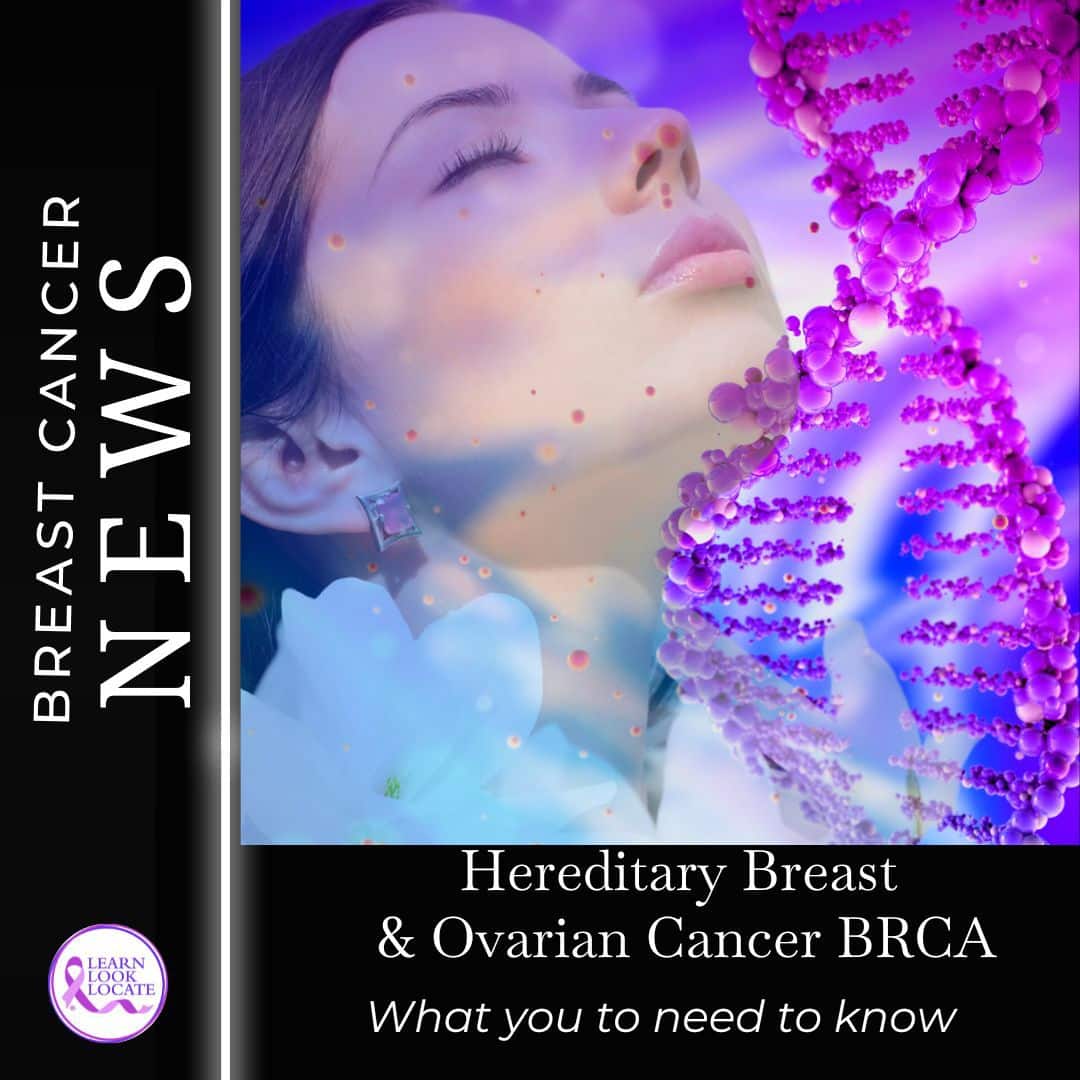
Understanding Hereditary Breast and Ovarian Cancer: The Role of BRCA Genes
What is hereditary breast and ovarian cancer syndrome?
The average risk of a woman in the United States for the development of breast cancer in her lifetime is about 13%, or a one in eight chance. It is estimated there will be 281,550 individuals diagnosed in the U.S. in 2022.
Up to 10% of breast cancers are hereditary – there are 11 breast cancer predisposition genes with BRCA1, BRCA2, and PALB2 conferring the highest risk of developing breast cancer.
Hereditary breast and ovarian cancer (HBOC) is one of the most commonly inherited breast and ovarian cancer syndromes and increases the risk of developing breast or ovarian cancer significantly. HBOC is due to mutations, or changes, in the BRCA1 and BRCA2 genes, also called the BRCA genes. (BRCA1 and BRCA2 stand for _b_reast _c_ancer _g_ene 1 and _b_reast _c_ancer _g_ene 2.) About 1 in 500 people in the United States has HBOC syndrome due to mutations in the BRCA1 or BRCA2 gene.
Women with alterations in the BRCA1 or BRCA2 gene have an increased risk of developing breast and ovarian cancer. Hereditary breast cancer is responsible for 5-10% of all invasive breast cancers and an increased risk of Triple Negative Breast Cancer and Ductal carcinoma in situ (DCIS).
People with HBOC have an increased lifetime risk of developing certain types of other cancers. An individual with HBOC has up to an 80 percent lifetime risk of developing breast cancer and up to a 40 percent lifetime risk of developing ovarian cancer. Cancers that develop as a result of the HBOC syndrome generally occur at an earlier age compared with those that develop in people who do not have the syndrome; a woman can develop more than one breast cancer in her lifetime if she has this condition. Other cancers associated with HBOCs include prostate cancer, male breast cancer, fallopian tube cancer, pancreatic cancer, and melanoma (skin cancer).
What causes HBOC?
HBOC is caused by a genetic mutation called a deleterious mutation, or a disease-causing mutation, in either the BRCA1 or the BRCA2 gene. To understand the HBOC syndrome, it is helpful to know a few basics about genetics. A gene is a hereditary unit of DNA. Genes carry directions to cells and tell them to make specific proteins that perform and regulate all functions of the body. Genes are capable of replicating themselves at each cell division.
A mutation is a change in the usual DNA sequence of a particular gene. Mutations can be beneficial, harmful, or neutral. Many diseases, including cancer, begin in the genes. Genetic mutations can be inherited from a parent or can be a random event that occurs in one single cell during cell division—or even in response to environmental factors and exposures. In the case of HBOC, we know that there is a deleterious mutation that causes the BRCA1 or BRCA2 gene to work incorrectly.
How would I know if my family has HBOC?
First, awareness of your family and personal health history is key. We know that families with hereditary cancer syndromes often have a family history that includes multiple generations affected by specific types of cancer that fit a certain pattern. And these cancers are often diagnosed at younger ages. Individuals in these families will often develop multiple cancers in their lifetime.
Red flags in a family history that might indicate HBOC include breast cancer diagnosed under the age of 45; ovarian cancer diagnosed at any age; breast and ovarian cancer diagnosed in the same woman; bilateral breast cancer diagnosed in a woman of any age; male breast cancer in any member of the family; and Ashkenazi Jewish ancestry (individuals of Ashkenazi Jewish ancestry have a much higher chance of carrying a mutation in either their BRCA1 or BRCA2 gene).
If I think my family may have HBOC, what steps should I take?
First, meet with a genetic counselor. A professional will have the tools to take a good family history and determine whether you meet criteria for genetic testing and what type of genetic testing you would need.
To prepare for a meeting with a genetic counselor, make sure that you have spoken with your family and understand your family history; the genetic counselor will take a detailed family history as a first step. Next, the genetic counselor will review the history for certain patterns in the family, including early onset of cancers and multiple cancers in the family (especially breast, ovarian, fallopian tube, pancreatic, melanoma, and prostate cancers). Based on these patterns, genetic testing may be recommended. In some cases, it may not be you who is ultimately recommended for genetic testing but rather another family member who would be a better candidate. This may be a relative who has already been diagnosed with a cancer, as it is more likely that a genetic mutation would be revealed in someone who already has cancer.
by Dr. C.H. Weaver M.D. Medical Advisor for Learn Look Locate. Copyright breastcancerconnect 2023.
By staying informed and understanding the various aspects of hereditary breast and ovarian cancer, individuals and families can make informed decisions and take proactive steps in their healthcare journey. At Learn Look Locate, we are dedicated to providing comprehensive breast cancer education and support. Our website features valuable information on diagnosis and treatments, as well as guidance from our esteemed medical advisors board. Additionally, we offer a platform for survivor blogs and emotional contributors to share their stories and experiences, fostering a supportive community for those affected by breast cancer.
